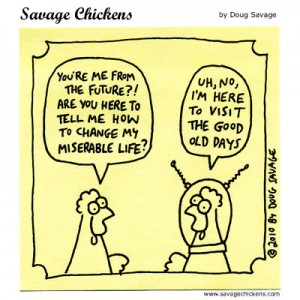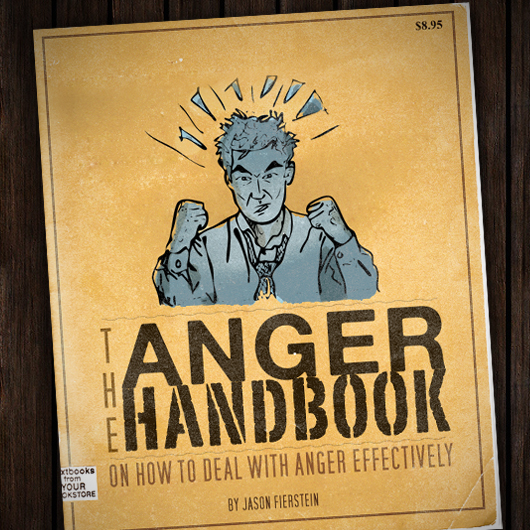I’ve been in a mental space lately that some would consider strange. I’m somewhat depressed but also fairly content and happy. To most people, feeling all those things at once doesn’t make sense. You’re either happy or depressed. But I’ve found that it’s more complicated than that.
Mood music:
[soundcloud url=”http://api.soundcloud.com/tracks/33409634″ iframe=”true” /]
I used to spend my depressive episodes curled up in a ball, feeling sorry for myself. Depression was cause for making the world stop and accepting everyone’s sympathy. It was a time to let things slide at work and to binge on food, alcohol and worse.
As I’ve gotten older, I’ve come to see my depressed episodes as a mild nuisance, like the common cold or a toothache. It sucks to have it, but life has to go on. I still have to work, get my kids from points A to B and be available when a friend or family member needs help. Curling up in a ball is no longer an option, though the occasional 20-minute nap is OK.
Medication has helped. So has therapy. My faith has made a massive difference, too. But I think the bigger game changer in how I view my depression came from the realization that I had unrealistic views on what it was to be happy.
We have an overdeveloped sense of what happiness is supposed to be. I call it the Happily Ever After Syndrome. We have this stupid idea that if we can just get the right job, find the right mate, accumulate the right amount of material things and have as little conflict with people as possible that we’re going to be on cloud nine for the rest of our lives.
Deep down we know that’s bullshit. But we reach for it anyway.
It’s a battle of false expectations. And when we can’t reach those expectations, it’s a huge let down. It creates a hole in our souls that we try to fill with more material things and addictions.
That stuff makes us feel better for a few minutes, but before long we feel worse than ever.
I think that hole is still in me. But through the grace of God it’s gotten a lot smaller.
I used to raise my fist and scream at God over how unfair life can be. I saw myself as a victim. Now I get it: We all have our ups and downs. We all have difficult problems to carry on our shoulders.
Happiness isn’t the absence of trouble. It’s not the worry-free, rainbow-infested existence I used to think it was.
In my case, happiness comes from getting a shot at doing things that matter to me. When I feel depressed, I can still keep going because of all the good stuff in my life: my wife and kids, a job I love, this blog, etc.
The depression wants me to forget all those things and give in to despair. And that’s what I used to do. But when I keep focusing on the important things in my life, I find that the depressed periods go away sooner than they used to.
So while I’m a little depressed this morning, I’m also full of gratitude. I have a great life, despite all my missteps along the way.










